|
Introduction We’re continuing our posts about the “equipping gifts” outlined in Ephesians: apostle, prophet, pastor, teacher and evangelist. And he gave the apostles, the prophets, the evangelists, the shepherds and teachers, 12 to equip the saints for the work of ministry, for building up the body of Christ, 13 until we all attain to the unity of the faith and of the knowledge of the Son of God, to mature manhood, to the measure of the stature of the fullness of Christ, 14 so that we may no longer be children, tossed to and fro by the waves and carried about by every wind of doctrine, by human cunning, by craftiness in deceitful schemes. 15 Rather, speaking the truth in love, we are to grow up in every way into him who is the head, into Christ, 16 from whom the whole body, joined and held together by every joint with which it is equipped, when each part is working properly, makes the body grow so that it builds itself up in love. ~Ephesians 4:11-16 In thinking about how to write about the Pastor aspect of the shepherd-teacher my mind (and heart) immediately went to my childhood Pastor, Bud Jones. In our current climate of car chases and explosions and the barrage of social memes and little mcnuggets of so-called cultural brilliance, Pastor Jones was not so much the antithesis to these things, but in some really important ways, a considered remedy. We lost him to his next better chapter after a bout with cancer a couple of years ago, but believe me when I tell you that his impact will continue to ripple out through the generations until this age comes to an end. The Pastor almost always brings their gift into another context, into someone else’s story. They insert a bit of peace, of stability, of perspective, and grace into the ongoing saga of our lives. So, in a bit of a longer post and in a bit more narrative form than previously, here is my best expression of what a Pastor does from a biblical perspective. ________________________________ Part I The summer rain whispered like unexpected kindness, like a touch on the shoulder from an old friend. Gently I was surrounded by comfort, a welcome and cooling presence in what I could only describe as the heavy tightness of afternoon heat. High in the crook of my hiding place, the perfect seated branch of a mimosa tree, I closed my eyes and slept. I awoke to a clear sky and a stab of fear as I considered my surroundings. Suspended more than twenty feet above ground I was seated in two twisting branches that formed into the shape of a perfect reclined position. With some relief I remembered where I was and that I was there on purpose. I just wasn’t used to waking up, in the open, that high off the ground. I felt the damp of the two additional branches raised above my “seat” and decided it was time to return to earth. There were two paths: the boring, slow, safe one used by bureaucrats with no poetry in their soul and the good path. The good path was more dangerous in theory, but the sheer joy of it made it worth the risk. The good path had five steps. Step one was a long launch out to a neighboring branch where you jumped, grabbed and swung out and back (usually twice) until you got under control. The movement from steps two through five were easily swinging down branch to branch Edgar Rice Burroughs style until you were safely on Terra. Laughter and transcendental glory lived on the good path, just so you know. I crouched. I leaped. I grabbed the "step one" branch and swung out all but horizontal as I had done a thousand times before. I forgot that it had just rained. And both of my hands slipped off the branch. Cue the second stab of fear. Time slowed down and I was able to weigh my options. I was probably twenty-five feet up, horizontal, with my back to the ground and my eyes peering through the lightly filtered sunlight via leaves into an impossibly blue sky. My one chance was that I had some momentum, so I tucked into my very first aerial back-flip. The goal was to get feet toward the ground and a possible old school parachute roll. And, in my defense, for a first try, it wasn’t the worst effort. Halfway through it occurred to me that I would likely land on my head and break my neck. I extended my arms and legs and twisted, trying to reverse my momentum. That also worked better than I thought and my feet were now coming under me as the ground was getting big in the window. I had over-rotated just a bit but I braced and was ready to try to roll into the impact as soon as I hit the ground. The only problem was, once again… I forgot that it had just rained. In my over-correction, my feet slipped on the grass bringing all the force of the fall and my spin onto my arm as I braced to try to catch myself. My left elbow pushed back into my hip and stopped violently. There was a loud crack, apparently I had landed on a branch hitting the ground. With a sharp exhalation, I rolled over onto my back. I remember the dampness of the grass, the blue of the sky. I remember the sound of our next door neighbor “Stoney” mowing his immaculate yard. After the earth-sky-earth-sky, and the literally unbelievable flurry of motion and confusion of the last 2 seconds, everything seemed preternaturally still. Well, I was still alive, so far so good. My arm felt funny and I looked over to see how bad it was. My mind didn’t accept what I saw, so I lay back down. Then adrenaline did what it does and I looked again. In the middle of my arm between my wrist and elbow, was an ill conceived second elbow as my arm was broken in a right angle. Not a branch it turned out. I somehow managed to pick up what remained of my limb, carefully twisting my whole body to open our front door, and went inside. I remember being unusually calm (another two points for adrenaline) and with a matter-of-fact tone mentioned to my folks that my arm was broken and I needed to go to the hospital. The next couple of hours are a bit of a blur but I distinctly remember… - how panicked my parents were and how quickly they were moving without seeming to go anywhere - the policeman who pulled us over, took one look at my arm, then led us at high speed to the hospital - the poor little girl who saw me at the entrance of the emergency room and her eyes went to Looney Tunes size… - the doctor who saw me from across the room, pointed, looked back at his clipboard, and said, “get that gentleman some Demerol”… God bless him wherever he is right now - the frown of the x-ray tech when he told me that he needed me to do a quick audition for Cirque de Soleil to get the scans he needed - the relief I felt when they told me I needed surgery and wouldn’t be trying to set this while I was awake ____________________________________ Part II I spent the longest three days of my life in the hospital bed afterwards. Those days stretched into years. So… very… boring. There was a crazy amount of pain that eventually required morphine to get under control. There was some amount of sadness when the doctor told me that I would likely lose a good bit of arm mobility and function. My parents were terrific and incredibly attentive throughout. I settled into the routine of the hospital stay. After a very rough night, I had a visitor around 11 am. It was my Pastor, Bud Jones, who might be the most saintly man I have ever known. He was a quiet man - and not to oversell it, he was Jesus to thousands of people over the course of his extraordinary life. Thinking about Bud, it occurs to me that we make statues of the wrong people for the wrong reasons. During his visit I started laughing uncontrollably. I mean completely unhinged, can’t breathe, full-on-tears-level laughter. To be clear, this was not my fault. I was flying on percoset. I was also triggered by the epic sound of the Squeaky Shoes. A lovely nurse who worked the morning shift had a pair of supportive white shoes that made the most fantastic sound. With every step, the shoes would squeak on impact on the tile ward floor, and then loudly squish in a squirting footstep with the following tone of something like a deep Louisiana muddy bayou swamp sucking sound. A sqworking, if you will. Perhaps an EEEekquishiblark if you catch my meaning. If I can’t reproduce, or describe the sound, I can still vividly remember it. You simply couldn’t have staged it better than the reality. There wasn’t anything mean about my helpless outbursts, at least not in intent. I was not laughing AT her. I was narcotically laughing WITH her and her screamingly hilarious shoes. The sound was insanely loud and while a terrific nurse, she was apparently unaware of just how funny her shoes were. My theory is that she had gone a bit “ear blind” to her own sound palette at some point. So Pastor Bud and I are in the room, being very appropriate, and kind, and spiritual. And here she comes. Her approach wasn’t a secret, she might as well have announced her presence at about 50 paces with an air horn. And I just lost it. I start giggling and progressed to guffawing, and from there to full on crying belly laugh. The Bible says that this kind of laughter does good like a medicine and I was all in. She comes into the room and I am just howling. I would try to recover, but then she would move again and I had no chance at keeping anything approaching composure. Poor Pastor Jones is trying to not smile, or to egg me on any further, but my response was so over the top that he was forced to look away and laugh a bit like Harvey Korman on the old Carol Burnett skits with Tim Conway. She said, “I just love this kid. He is SO happy every time I come into the room.” Bud is smiling and nodding and not touching that one with a ten foot pole. “He’s so happy, it’s just like sunshine.” And off she went to her next victim, swqork, swqork, swqork. The doppler effect up and down the hall just made it funnier. Pastor came to visit me every single day over those three days and he was the only one who did. We got Squeaky Shoes on days one and three, with a “sqwork drive by” on day two. Outside of the shoe thing, I was lonely and hurting and bored and Bud’s visits were the highlight of my day. Don’t get me wrong, a lot of very kind people popped in to see how I was doing, many more than I would have expected. I appreciated them all. But Bud came every day. Short, effective, kind visits where we just talked for a bit, then he prayed for me. It was so consistent. It was deeply meaningful. It communicated a depth of selfless, authentic concern and follow-up that is all but lost in our culture today. I wasn’t out of the woods until I came home, so it was a given that Pastor Jones would come to see me. That’s just who he was. One of his sheep was hurt and he was checking in. I don’t think I ever told him directly how much that simple threefold act of kindness meant to me. I also don’t think I can adequately describe how much this impacted my view of God and the quiet, immense, spiritual power of the Pastor Shepherd. But that won’t stop me from trying… He was like the summer rain whispering ancient wisdom in unexpected kindness, like a touch on the shoulder from an old friend. In his godly presence, I was surrounded by comfort, a welcome and cooling wake in what I could only describe as the heavy tightness of the hospital ward. After his blessing, low in the crook of the convalescence of my motorized lee, I closed my eyes and slept.
3 Comments
There is a fascinating passage in Ephesians chapter four: 11 So Christ himself gave the apostles, the prophets, the evangelists, the pastors and teachers, 12 to equip his people for works of service, so that the body of Christ may be built up 13 until we all reach unity in the faith and in the knowledge of the Son of God and become mature, attaining to the whole measure of the fullness of Christ. 14 Then we will no longer be infants, tossed back and forth by the waves, and blown here and there by every wind of teaching and by the cunning and craftiness of people in their deceitful scheming. 15 Instead, speaking the truth in love, we will grow to become in every respect the mature body of him who is the head, that is, Christ. 16 From him the whole body, joined and held together by every supporting ligament, grows and builds itself up in love, as each part does its work. (~Ephesians 4:11-16 NIV) The idea is that God places certain gifted individuals to sharpen and upgrade the rest of us. The outcomes in these relationships tend toward a dramatic increase in unity, knowledge, maturity and stability. We grow up to a point of love where we are no longer infants in our thinking or ability, but will come to a place of maturity and proper place in the world at large. So, continuing with prophet (and their biblical examples of Samuel, Elijah, Elisha and Peter, James, Paul…) what can we say about this gift? Henrietta Mears, in her famous book What the Bible is All About talks about prophets having a three-fold role in their prophetic voice. 1. They talk about what God did in the past. 2. They talk about what God is doing now. 3. They talk about what God will do in the future. In classical literature, the seer or sage is a mysterious figure, providing ominous portents of the future that almost always contain an element of malevolence or danger. Think, the witches in Macbeth here. Looking into the future is a compelling and scary business, not to be taken lightly. Partly because of our fascination with this, we attach to the “future speaking” role of the prophet with perhaps too much attention, while ignoring the other two critical pieces of their role. In the Hebrew Bible, it most often sounded something like this: Remember when God called Abraham? Remember when He called you out of Egypt? Remember when He fed you for a generation and then led you into the promised land? That same God is calling you today… to turn away from the not helpful activity you are engaged in and turn back to God and His word to You. He loves you dearly and doesn’t want you to reap the harvest that will come from the very bad seed, in the very bad field, where you are currently busy. And someday, God will come again, to make (in Tolkien’s phrase) everything sad come untrue. He will reset the scales and rule us with wisdom and justice forever. Past. Present. Future. Cool isn’t it? In thinking about this, I’d like to take the angle that we did before, of considering some things about the prophet we might not ordinarily know, and take a look at how best to support them in their gift. Let’s start here: - The prophet gift, like apostle and evangelist and all the rest, is not a guarantee of character, or maturity or primary calling in regards to our own repentance and personal relationship with God. The reality is that, even a gifted individual can fail, can have serious issues of character or personality and is not, by default, any more capable or wise in handling the sin in their lives than you are in yours. They will react badly in response to trauma, and will need to grow out of that, just like anyone will. My point is that their gift is not a pass related to holiness or judgment. So cut them some slack. They need grace just like the rest of us, in spite of the power of their gift and the doors that their gift will tend to open. They will need prayer, and friendship, and someone who can tell them to cut it out… just like the rest of us do. - The prophet will prophecy to himself, maybe moreso than to others. That’s just the nature of spiritual gifts I think. The teacher learns more than anyone in their preparation, chasing down lines of thought and inquiry that never see the light of day in their public presentation. The blessing and curse of prophecy is the seeing of what God is doing before, during and after and it is a lens that will be pervasive to them, even outside of the specific role of MESSAGE TO BE DELIVERED WITH HOLY WEIGHT RIGHT NOW. So know, that when the prophet gets harsh with a group or with an individual… that they will tend to be even more harsh with themselves. They are speaking, not out of an entitled, condescending, holier than thou perspective - but from a place of urgency, knowing firsthand that if God’s perspective isn’t heeded, the consequences can be devestating. - The prophet will seem like a contrarian, even when their message starts to resonate. Because of their “lens” as it were, they will have a really odd response to many situations. Yes, but… will come out of their mouths a lot and they will seem to disagree for the sake of disagreeing. It’s not that exactly. It’s more that they see, by their nature, what others will tend to miss - and they will want the full picture in play. Another piece of this is timing. The prophet will often see the next step, way before the next step is ready to deploy. So the frustration of waiting for a year, two years, sometimes more… until their context “catches up” with them can sometimes put a little edge on their communication. Also, expect an eye roll and a careful blank look when the thing they have been saying for 30 months is suggested by someone else, and suddenly everyone starts clapping like seals and starts to jump onboard. So what do we do with our prophet here? Affirm them. Notice that they "called that one" quite some time ago and honor them for it. Also, when they start to speak in weird ways, ask probing questions to clarify what they are seeing but may have trouble expressing in an understandable way. Resist the urge to move on too quickly when they hit you with a non sequitur. Take the time to understand where they are leading… and if it isn’t time yet - think about how to prepare for the thing they are seeing downstream. - The prophet will be lonely. Nathan poking at the king and Jeremiah in the rubble and Ezekiel taking shots at everyone is not the Dale Carnegie process for friends and influence. The nature of their role and speaking will alienate a lot of normal social connections that would otherwise be in play for them. They will need friends and they will need people to reach out to them more than you might think. Don’t assume that their vision and lightning like power in perspective will replace their need for simple community. Make a place for your prophets and let them know they are loved. - Listen to them. They can be as wrong as anyone in terms of priority, emphasis, or saying a right thing in the wrong way as anyone else can. But very often, the nature of the prophet will have them trying to express an ineffable but critical idea to an audience that just doesn’t get it. When you get the spiritual sense that something is afoot - help them make the connection to the larger group. Understand the scope and limits of what they are saying and go with them. God uses this gift to shift the window, to further the horizon and to change perspective. Maybe more than any other gift, this one involves change, and discomfort and the cost of transition that often brings. So lend them your ear and your heart and the depth of your understanding as much as possible - you’ll be glad you did. There is a fascinating passage in Ephesians chapter four: 11 So Christ himself gave the apostles, the prophets, the evangelists, the pastors and teachers, 12 to equip his people for works of service, so that the body of Christ may be built up 13 until we all reach unity in the faith and in the knowledge of the Son of God and become mature, attaining to the whole measure of the fullness of Christ. 14 Then we will no longer be infants, tossed back and forth by the waves, and blown here and there by every wind of teaching and by the cunning and craftiness of people in their deceitful scheming. 15 Instead, speaking the truth in love, we will grow to become in every respect the mature body of him who is the head, that is, Christ. 16 From him the whole body, joined and held together by every supporting ligament, grows and builds itself up in love, as each part does its work. (~Ephesians 4:11-16 NIV) The idea is that God places certain gifted individuals to sharpen and upgrade the rest of us. The outcomes in these relationships tend toward a dramatic increase in unity, knowledge, maturity and stability. We grow up to a point of love where we really love, not just telling people what they want to hear… but setting the broken bone when needed. If we don’t get this right, our works of service are of diminished value. These equipping gifts and their influence are the very foundation of our ability to speak the truth in love. As Timothy Keller pointed out throughout his career, only love will try to avoid hurting the beloved at all costs - and only truth can be harsh and cold while being completely correct. Only when we have both do we find a depth of meaning and real relationship that lasts. So, starting with apostle (and their biblical examples of Peter, James, Paul…) what can we say about this gift? - Apostles will be great at starting things This gift will tend to serial entrepreneur endeavors. They will see the opportunity no one else sees and they will get it started in some form faster than anyone would believe. They will be excellent at beginning and adjusting on the fly. And they will have to resist the urge to stay with the new work too long. The new faith organization they begin will be exceedingly vulnerable in the beginning; this is the nature of anything new. They will tend to be quickly pulled to the next new thing so leadership development and transition planning will be paramount for their success (and sanity!) - Apostles will defy normal demographic boundaries This one is really fun. These guys will have connections with churches from Ethiopia, the Philippines, Mexico City, the local Farsi community and will be teaching a class of Chinese immigrants English, using the Gospel of John. It will be bananas! They will be surrounded by a storm of very weird intersections, pretty much all of the time. Things that would normally be a barrier for connection, communication and stability related to culture, language or particular ethnic expression will be all but a non-issue for the apostolic gift. Their connections, while incredibly diverse and chaotic, will feel like the most natural thing in the world, and God will kick open doors for them. Something to consider here is giving them excellent second level support. Here’s what I mean by that in terms of direction: Why is God connecting this particular group with our Apostle? Why now? What do they need? Or what opportunity for something amazing do they represent? Because of this gift, they will make excellent cross cultural missionaries - leaving behind a leadership network of indigenous and trained ministers in their wake. They will also spark unusual connection between need and resources - so look to jump in and help where you can! - Apostles will be highly attractive to a variety of people When they start something, they will almost magically have 20-50 people who will appear to help them or be a key part of the new group. Leaders will want to support them (and sometimes, exploit them for their own agenda). New leaders will find great work to do as they grow and develop. People looking for purpose and calling will be pulled into orbit almost by default. Again, this is really fun and we should look to support the Apostle in downstream effort to stabilize, fund and train the new wave of people. - Apostles will be overloaded with opportunity Make them take a day off and be unavailable. They’ll be more effective with a true Sabbath to power down than without one. But they will feel tremendous pressure to talk to one more person on the day that they really need to just spend with their family and friends. This is the dark underbelly of the amazing ability to see and connect cross culturally. The reality is that there is a ton of heavenly opportunity around us all the time, but Apostles will be unusually connected to see it and do something about it. If they can find a balancing idea… something like, “we can’t do everything, but we can do something” it will help greatly. Resist the urge to process them to death to reduce the chaos. They will flourish with the blank, undefined, open page. - Apostles will have unusual gravitas, and will often be local in activity Watch them in a group of leaders. When they speak, everyone will stop and listen, perhaps without even knowing why. And to be sure, they make excellent national class leaders with corresponding gifts of administration and experience managing groups of people. The thing to remember (with say, Paul as an example) is that of lot of their activity will be most fruitful in the mode of the small business owner, “boots on the ground” sense. They will roll into a city, walk around, talk to some people and get a lay of the land. Then they will form a plan and people will appear to help them flesh it out. Sometimes this will be Peter on Pentecost with a huge revival of thousands that jump-starts the work in a generation. But more often it will be tent-making and helping the small church core get going over a period of months to years. They will be the warm and personable “Mr. Mayor”, the guy who knows everyone, who everyone loves, who will have a meaningful conversation with a guy at a stop light with his window rolled down. They will comfortably hang with the corporate execs and the janitors coming in for the night shift to clean. The apostle will be extraordinary in making one to one connections with people, so be careful to keep that opportunity for connection as a key part of their weekly set. _______________________________ This took an interesting turn as I was writing it. We can inspire leaders to lead. We can give permission for leaders to speak deeply into our lives and influence us for the good. So my question for me and for you is this. What can you do to help, encourage, and respond to the Apostle in your life and orbit? Eyewitness accounts, while still a primary source of evidence in legal proceedings, are notoriously problematic. The act of witnessing something can be subtly altered by a number of factors: confirmation bias, the post-event misinformation effect, and the state of the particular witness before, during, and after the event can all have some impact to testimony. We forget things, we may, without bad motive, align misattribution to a story we tell about our own experience. We may hedge, or rationalize, or edit, based on things we stand to gain or lose related to the stories we tell. And people lie. (Insert eye roll here). And yet... and yet. All of known history is based on eye witness accounts. We experience events, we recount those events, we make stories of those events. Sometimes we write those stories down... and related to momentous individuals or occurances we sometimes have great interest in telling those stories accurately and well. To say that, "history is written by the victors" is incomplete. History is written by those who think the lesson of generational events is important. Sometimes those lessons are tragic, or a recounting of savagely epic and tragic defeats. The victors, as it were, just have more of a say in what history gets copied and passed on. Isn't it interesting, in light of the philosophy of history, and the axiomatic truth that eyewitnesses can be out to lunch... that Christianity, in regards to the advent of biblical literature, has a stunningly good answer to this problem? And what is this answer we ask? Four Gospels. In folk tales and in oral traditions there are surpassing versions of stories. If you look at something like the Arthurian Legends, they have a fair bit of inconsistency in their tellings. Are we looking at the Latin Chronicles, Le Morte d'Arthur, the Allerative Morte Arthure, T.H. White's The Once and Future King, or the anonymous Gawain and the Green Knight, or the myriad other sources of Arthur and the knights in his orbit? Do most people know that Lancelot was a late addition with heavy French influences? Do most people know that Arthur, in his earliest legends, is much closer to Rome than to the Medieval era? Gwynevere or no Gwynevere? Round table or no round table? Holy Grail Quest or no such mention? Is Arthur holding England together or marching off to Rome? It depends of what Arthur author you ask. Don't misread me. I adore the Arthurian Legends! I would be the very first to argue that these tales have some consistency, and highly significant parallel themes. But, even in my positive bias, I am forced to admit they are slices of great stories that do not form a cohesive whole. Rather they are versions; written takes and retakes that served different roles in expression in different times. In the Hindu tradition, you'll find similar slices of the story of Rama and his many adventures. Or of Paul Bunyon and his Big Blue Ox. It isn't that the different versions of major cultural stories exist, and that the Bible does this too, but my argument is that the Gospels take this in a radically different direction. Christianity is unique in its New Testament Gospel approach. Never, in the history of humanity, have there been four major biographies, all accepted as canon, very early on, of a major historical religious figure. There aren't four related but independent accounts of the life of Buddha, or Mohammed, or Joseph Smith or any other spiritual progenitor. With this, as in so many cases, Christianity stands alone. There are three things about the multiplicity of the Gospel narratives that I find compelling and further evidence of divine influence. 1. That They Exist at All is Incredible Who, on reading the book of Matthew or Mark, would immediately think to write it again? Who, after reading, Matthew AND Mark, would think, that's pretty good, but let's write another one, just because. Who would encourage John to take yet another swing after the Beloved Physician puts pen to papyrus? Also note that they came so early. If you research the most scholarly acclaimed biographies of Abraham Lincoln, they were written in the last 20 years. More than 100 years after he lived. With the advent of the Gospels, we have to start with: these four biographies exist, all of them standing at the pinnacle of all biographies ever written in terms of depth and scope and influence. From a human perspective, this is not a normal strategy. You would want a single story, and you would want that story to continue unchanged as much as possible (like the Koran, only being kept in its sacred form in its original language). You wouldn't want to confuse the narrative with a well intentioned second, third and fourth version. This isn't in any way a critique of biblical scholarship that tries to textually chase back passages to a proto-text "Q" that was used by all of the synoptic authors. Without getting into the weeds of Markan or Mathian priority and the byzantine labrynth of two source speculation... there is something we can say about the generation of the Gospel authors and their accounts with extreme confidence. It is simply this: They knew about each other, and they knew each other's writings and work. It is impossible to come to any other conclusion. They literally knew each other. Mark and Luke were both companions of Paul and all four Gospel writers would have had strong connections to the ongoing work of the early church in Jerusalem. They were also in direct support of the missionary journeys of Paul and the other epistles and early writings that served as encouragement to the first generation of churches. As brilliant as the first Gospel accounts were, they would have been celebrated. And we know from the sheer number of manuscripts that they were a hit. The logical thing would be to check "Jesus life story" as "done" and move on to the next thing. But that isn't what happened. Instead the Holy Spirit moved on these early Christ Followers to write it again. And again. And again. Not because they didn't get it right, but because it would add to the depth of the story and the foundation of the expression of God's love to us through Christ in a way that is deeply moving and needed for the richness of insight that God knew we would need. 2. They are Remarkable in Their Message and Vision The aforementioned biographies of Lincoln are: "Team of Rivals: The Political Genius of Abraham Lincoln" by Doris Kearns Goodwin (2005) "Abraham Lincoln: A Life" by Michael Burlingame (2008-2019) "Lincoln" by David Herbert Donald (1995) All of these biographies are quite different in focus and scope. They agree that Lincoln was a great man, a great President and in Hegelian terms, a World Historical Individual. Beyond that, they are wildly diverse in terms of style, in approach, and in key themes. Goodwin focuses tightly on Lincoln's political acumen and his cabinet as the key to his success. Burlingame goes into meticulous detail of the life of Lincoln outside of the political arena, showing how the man in his formation eventually played out on the world political stage. Donald plays it straight with a balanced and scholarly approach to life, then to Presidency. My point is that the Lincoln biographies are wildly different works, with wildly different points of interest and influence. They will often disagree about Lincoln's primary formation and motivations. They continue to write because Lincoln hasn't been adequately captured in some sense. But somehow the Gospels are not in this vein. Even with distinct authors and features, they maintain a clarity of focus which is extraordinary. They all point the same direction, using very similar styles, stories and points of view. They all portray the same Jesus. Instead of divergent tales that occasionally overlap, they are more like different eyewitness accounts of a single event. 3. The Differences of the Eyewitness Accounts in the Gospels is Singular and Compelling When one eyewitness reports an amazing story that defies belief, we frown and investigate. We look for corroborating or discounting evidence. The narrative of a single witness may even be viewed with suspicion even with a complete lack of any facts to dispute their story. We may listen. Their single report will often be enough for action and futher gathering of evidence, or may become a lead to eventually bring all the facts together. If four eyewitnesses tell exactly the same story with no variation - the conclusion among experts of evidence is that they have colluded with intentionality. They all agreed upon a story, rehearsed it, then recited it after the fact. It actually lowers the credibility of the eyewitness account instead of raising it. Too much agreement will increase the value of other circumstantial and fact finding mechanisms. But if multiple sources each independently give an accounting of events from their point of view, with subtle differences in perspective, in emphasis, and in expression while maintaining decisive agreement on the key facts and events... that account is given the most weight a piece of evidence can own. It's a slam dunk. It rings true, because it is true and the Gospels fall into exactly this kind of multiple eye witness account. The differences are tiny and helpful and easily explained, the larger themes are resonating in agreement. The Four Gospels bring us a mutlifaceted story of the life and work of Christ which becomes credible in a way that no early historical document can (or ever will) match. How can this book be meaningful in the first century and under the level of scrutiny that biblical texts undergo still be meaningful today? How can these books speak to provinces in the Roman era, then to every generation since then, then continue to speak to us? God is involved. I don't have a better explanation. That's why the Gospels, along with 10,000 other neon signposts, has convinced me that the Bible, as God's Word to us, is necessary... and it's the real thing. One of the remarkable things about Scripture is what I call the Consistency of Metaphor. Writers, commentors and theologians for thousands of years have commented on the consistency of the biblical text and while that is what I'm referencing here, the thought is more specific. I'm taking "metaphor" in the literary sense, which is a statement of comparison between two dissimilar things to bring depth to an idea or description. This is one of the things that makes language beautiful, and that we can easily understand this is an incredible and noteworthy facet of language itself. Let's take a page from the Bard... All that glistens is not gold; Often have you heard that told: Many a man his life hath sold But my outside to behold: Gilded tombs do worms enfold. Had you been as wise as bold, Young in limbs, in judgment old, Your answer had not been inscroll’d: Fare you well; your suit is cold. ~The Merchant of Venice, Act II, William Shakespeare In context, this is a test related to the eligibility of Portia for marriage from The Merchant of Venice. The idea is that while Portia is outwardly beautiful, her true and lasting beauty is internal and not merely flesh deep as it were. The complicated idea Shakes is strikingly communicating is that a shallow appreciation and perception of beauty is like the ornate decoration of tomb. Pretty on the outside, decaying and worm-ridden on the inside. In a handful of lines and with the comparison of people to tombs, Shakespeare elegantly leads us to the idea that the love of money is ultimately consuming, while the apprehension of virtue and character is of undiminishing value. This is the power of metaphor. The image expressed well can communicate directly, while still maintaining a nuance that brings immediacy to understanding even a difficult and multi-facted idea. So with biblical metaphor. The pictures we receive from inspired text can open our minds and hearts to truth that is harder to get to by more direct means. The pictures, while necessarily incomplete, help us form a better connection with the ideas of virtue and God than we can get to through our own direct experience alone. This way of speaking can effectively lead us from the known to the unknown. So, in the words of a favorite professor, "I never metaphor I didn't like." Truly. Here's the amazing thing: the Bible is stunning in it's Consistency of Metaphor. Let me give you an example... www.biblegateway.com/quicksearch/?quicksearch=shepherd&version=ESV This is every mention of the word "shepherd" in the Bible. Check it out and skim the results. Two things here: first, sometimes a shepherd is a reference to the actual occupation of shepherd and sheep husbandry. Second, you'll quickly see that the idea of God as "Shepherd" has a lot of touches from the Torah, the Prophets, the Psalms and the Gospels, along with the letters to the early churches in the New Testament. From there, you'll see numerous references to the idea of spiritual and political leadership as shepherding, with good shepherds being terrific, and the lack of a shepherd being very bad. It's not that the picture of shepherd always means the same thing. It's way more complicated and interesting than that. It's that the metaphors will strongly tend towards a cluster of ideas that point in a singular and helpful direction. And this works for any metaphor you care to look at. Bears, birds, trees, honey, water, fire, you name it - if you look at the pull of all the biblical references you'll find a wonderful consistency and direction to the figurative nature of the language. Try if for yourself at biblegateway.com or any concordance of your choice! Pick a word, or phrase, or picture and look up every reference in scripture, read through them and ask the question, what do these things have in common? To be fair, a part of this is the nature of language itself, and when a helpful metaphor emerges it tends to enter language and is repeated over time to communicate the idea it hits upon. Yet what I'm seeing here goes far beyond that simple durability of language. I am amazed at how beautifully this expresses, and expresses continually throughout the biblical text. Again, this is my opinion, but one that I'm very confident in: no one is smart enough to do this at this level. Even more incredible, is that this consistency is present, across multiple languages and generations, with over 40 different authors. Pastor Christoph Römhild and researcher Chris Harrison, tracked this idea through a series of data pulls and graphical representations. A famous one is shown below - this is the direct connections of the bible referencing itself (i.e., one book quoting or referring to another book in the Bible). This happens specifically close to 65,000 times. It is the world's greatest self referencing hyperlinked text. With the multiplicity of the human part of authorship, this pattern of facts and Consistency of Metaphor lead me to believe that the Holy Spirit did in fact inspire the Bible, that it is in fact, God breathed... And it's one of many reasons why I believe that the Bible is the real thing. The Crazy Level of Symbology One area of fascination for me is the nature of language itself. Charles Hartshorne, in a wonderful lecture on this topic, commented that he believed that (in some sense) God was above language, the animals were below it and we inhabit this space in-between. And it is not to be missed that in orthodoxy it is primarily in the space of words and ideas that God speaks to us. Subjectively, from the very beginning, God walked and talked with us in the cool of the day. His voice came to and through the patriachs, the prophets, the priests and even a king or two. Even in this world of incredulite skepticism, if we pause, our bones remember. Exhibit B would be the cathedral of holy scripture. In that expression, we are told in the gospel of John that Jesus, as Incarnate, comes to us as "the Word" of God and the idea here is worthy of note. A huge part of His coming was the expression of the divine, in specificity, in a language that can be learned and understood. As Hartshorne pointed out, God meets us with words, in this case perhaps, the Word of words. Certainly there are mystical encounters of emotion, of dreaming, of visions and the ineffable presence that believers have experienced from the beginning as well. But it is words that win the day. It is the foolishness of preaching that still oddly serves us well. We dig and write and speak and sing and ponder as the "meta" meanings with Inception-like layers retain their sense of playful fun while losing none of their weight. We read God's word, in translated words, talking about the Word that came and lived among us with our words. Every level filled with meaning, packed with significance, even as the weakness of language points beyond itself to strength of the highest sort. I don't know how you account for that outside of the simple acknowledgement that language itself, shares something like a divine nature. Also, this is why lying is a very big problem indeed. Tying this back to the Bible, let me give you an example of what I mean. The depth and richness of figurative symbols that tie Hebrew Bible to the New Testament are incredible. First, in Genesis 40:8-19, these are the dreams in prison from the story of Joseph: 8 They said to him, “We have had dreams, and there is no one to interpret them.” And Joseph said to them, “Do not interpretations belong to God? Please tell them to me.” 9 So the chief cupbearer told his dream to Joseph and said to him, “In my dream there was a vine before me, 10 and on the vine there were three branches. As soon as it budded, its blossoms shot forth, and the clusters ripened into grapes. 11 Pharaoh's cup was in my hand, and I took the grapes and pressed them into Pharaoh's cup and placed the cup in Pharaoh's hand.” 12 Then Joseph said to him, “This is its interpretation: the three branches are three days. 13 In three days Pharaoh will lift up your head and restore you to your office, and you shall place Pharaoh's cup in his hand as formerly, when you were his cupbearer. 14 Only remember me, when it is well with you, and please do me the kindness to mention me to Pharaoh, and so get me out of this house. 15 For I was indeed stolen out of the land of the Hebrews, and here also I have done nothing that they should put me into the pit.” 16 When the chief baker saw that the interpretation was favorable, he said to Joseph, “I also had a dream: there were three cake baskets on my head, 17 and in the uppermost basket there were all sorts of baked food for Pharaoh, but the birds were eating it out of the basket on my head.” 18 And Joseph answered and said, “This is its interpretation: the three baskets are three days. 19 In three days Pharaoh will lift up your head—from you!—and hang you on a tree. And the birds will eat the flesh from you.” Subsequent events happened exactly as Joseph foretold. Notice some of the primary images and outcomes of each dream: Cupbearer: Wine (along with vines, grapes and preparation) Prominent number 3 (becoming 3 days) Prominent cup, placed in hand Restoration Remember Me Chief Baker: Bread Prominent number 3 (becoming days again) Bread as flesh, being eaten Death Hanging on a tree Does any of this sound familiar? It's not a stretch to notice that these are the elements of communion. And what is the Cross and the Gospel at it's heart but a Dream of Death and simultaneously a Dream of Restoration? The Bread that is broken, the Wine that we consume in remembrance, in the story of Joseph become the catalyst to bring redemption to the known world. 3 days? Remember Me! Here's the thing. Genesis was written thousands of years before the Last Supper. As far as we know, Jesus or Paul or Luke never mention the dreams of Joseph as a direct tie to the early act of communion. This kind of figurative picture and connection doesn't happen only here, it literally happens thousands of times, in extraordinary consistency and clarity. As someone who loves great writers, Shakespeare, Dante, Eliot and all the rest... I'm telling you that no one is that smart. And that would be assuming a single human mind with uncommon clarity of vision and focus. The reality is that the Bible was written by 40 different authors, over 1600 years, in multiple languages - yet the depth of agreement with foundational principles, unfailing direction and detail is impossible to imagine. Ever try to get 5 people to deliver on a group project for a class due on Friday? Multiple that by a billion and you have the authorship of the Bible. The only way it works is if you have a single Showrunner Who is driving the train, even while a variety of authors are working pen to paper. That's one of the reasons I believe this text is the real thing. THREE NOTES ON ASBURY, PART THREE: Short version, this is the real thing. Pray for these folks. Be slow to speak. Be open to what God is doing in your context. We made it to Wilmore, Kentucky on Friday, Feb 17th around 6pm and the revival had been in progress for about 10 days at that point. They were starting at 10am and continuing until about 1am in the morning, with the room pretty much completely full the entire time. People would deliver short messages, surrounded by much prayer and worship. When we arrived, there were (guessing) 5000 people outside, waiting patiently to get in the room - with folks queueing in as others eventually left. Asbury volunteers were ushering folks in and out and were really sweet about it. A couple of thoughts. 1 - It was really cold. Just below freezing to be precise and in a fit of shortsightedness we really weren't dressed for it. They had setup periodic propane heaters and volunteers from local churches and well wishers were handing out water and a variety of snacks. We waited for over three hours, slowly walking toward Hughes auditorium. You could hear the room singing well outside and it sounded heavenly. Interesting that the cold did not seem to be stopping anyone. We talk so much about barriers to connection in church stuff - having no good answer to waiting 3 hours in freezing temperature would be a non-starter in almost any other context. This is how hungry people are for something real. 2 - The people in line were really fun. We met a pastor and worship leader from New York who recently divided the city of Manhattan into 21 sections and his church walked and prayed over the entire city over 21 days. We met a seminarian, actually from Asbury, who is looking to plant a church in Hong Kong. His vision is to mobilize and encourage and be as strategic as possible for the next decades in the Chinese church. We met folks from Ohio, a lovely young lady from Texas and many others. I just want to say that the people we met weren't crazy, or the lunatic fringe. They were smart, funny and real and we had a great time on the way to the meeting. I was deeply encouraged before we even made it inside. All of the people we saw clearly felt drawn to what was happening at Asbury, and we were in the same bucket. Curious, hopeful, encouraged, and simply acknowledging that God was up to something here - just look around. 3 - The utter lack of production was really interesting. Don't get me wrong, I LOVE production things that make our lives a little better. I've done music with no sound guy and pro sound guy and pro sound guy is way better. But in the room, the music was basically one instrument, a piano or a guy on guitar and maybe one or two vocals in support. No drums, no bass, no smoke and mirrors of any kind. The music was lovely, but it wasn't slick or polished, or canned in any way. That was intentional, the whole ethos of the movement is to get back to what's real and what is primary. In that setting the Asbury kids found that you don't need the wall of sound full band thing to support a revival of simple truth and repentance. This does not diminish my sheer enjoyment of wall of sound - that will likely continue for me - but in this context it was fascinating for that to be one of the things that wasn't "need to have." This is hard to express. It wasn't ANTI drums, or ANTI technical... it wasn't quite Jack White pitching guitar effects into the fire... but the heart of the movement, in some sense, is to clear away all of the extraneous and just give God your whole heart. So the "how" of what they were doing was simple, to further support the "what." It worked. The room was really engaged and worshipping deeply. It was more take off your shoes on holy ground, and less big show with lights and fog. 4 - Everything said was really grounded and biblical. The knee jerk is to write this off as kids, with the hair and the music and the phases and the flash in the pan. But everything we experienced from the leaders there in terms of what was said was stuff that right on the orthodox button. It wasn't clever, it wasn't emotionalism, it wasn't manipulative, it wasn't gimicky. It wasn't manufactured through process or strategy. It was just deep and real. 5 - This is a revival of repentance and relationships. God spoke to me clearly about things I could be doing better, specifically related to my family. And I will do my utmost to follow through. I didn't get "zapped" as much as I got some needed insight into how to bless my daughter and my wife. And if you consider for a minute, that's the deep magic isn't it? I wasn't alone in that, tons of the stories of God moving were about forgivness and reconciliation with real people - it seems to be a big part of what's going on. So for my money, Asbury is real, take that with a grain of salt - because I am not nearly as smart or as discerning as I would like to think I am. The things we saw were extraordinary, the people we saw were beautiful and real and the impact will go futher than you think, in really good ways. God bless these kids and our generation! If you have questions, or want to hear more, I'm happy to talk about it! Ping me at [email protected] and I'll look forward to connecting with you! |
Our Writers:At The Surge we love doing things together... that includes writing a blog! Here are a few of our main contributing authors: Greg JohnsonJesus++ Dwaine DarrahOur fearless leader, Dwaine is the lead pastor at The Surge. His experience in counter terrorism with the CIA prepared him for ministry and he likes dogs and babies even more than E does. EE (short for Eric Reiss) is the Wingman at The Surge and likes dogs, music, Mexican food, his wife Karen and his little girl Evangeline... not necessarily in that order. Archives
June 2024
Categories
All
|
|
|
The Surge Community Church
Meeting Sunday Mornings at The State Theatre in Falls Church, 11:10am! Rebroadcast Available Sunday Evenings with SurgeOnDemand, 7:00pm! |

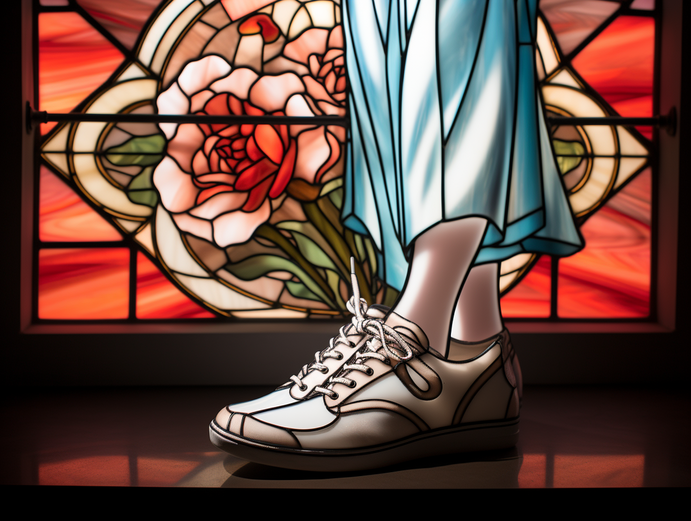
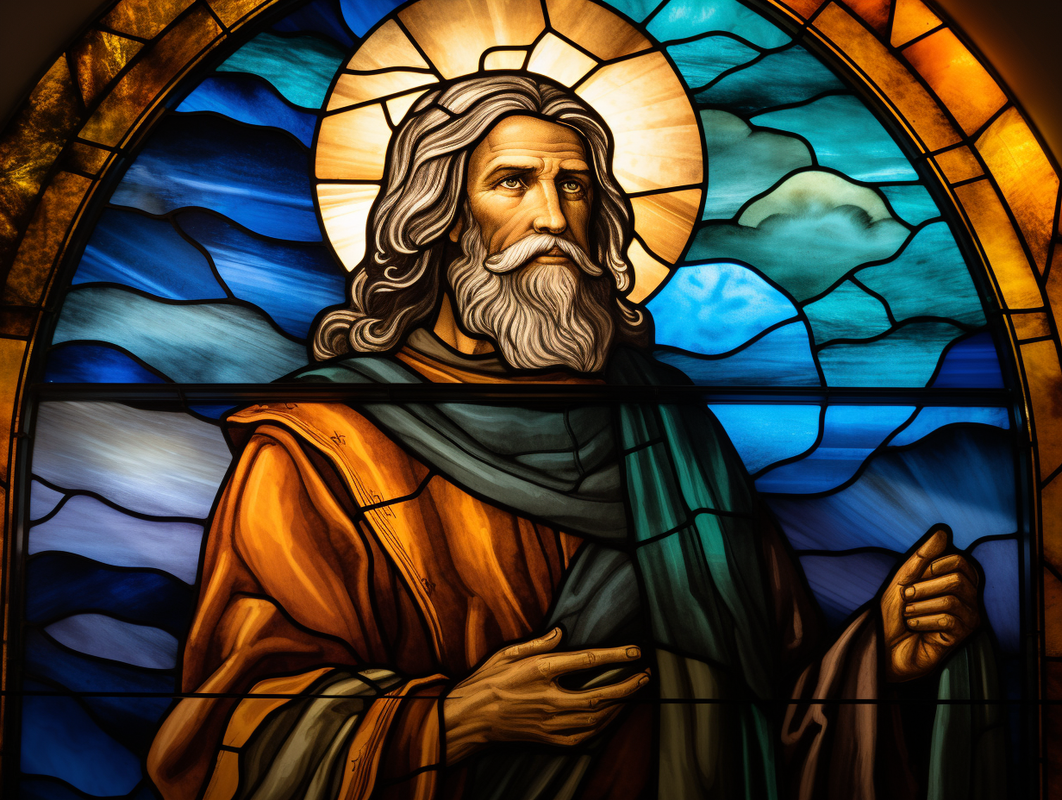
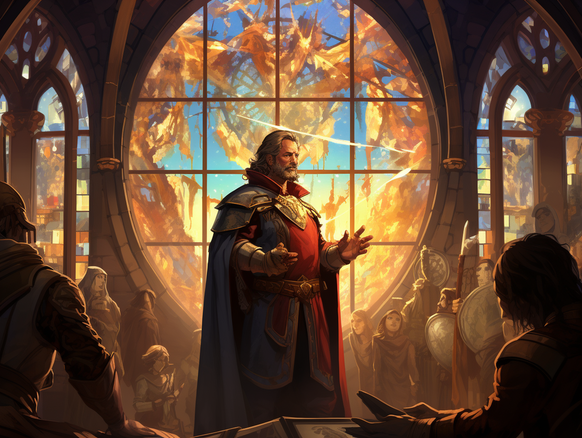


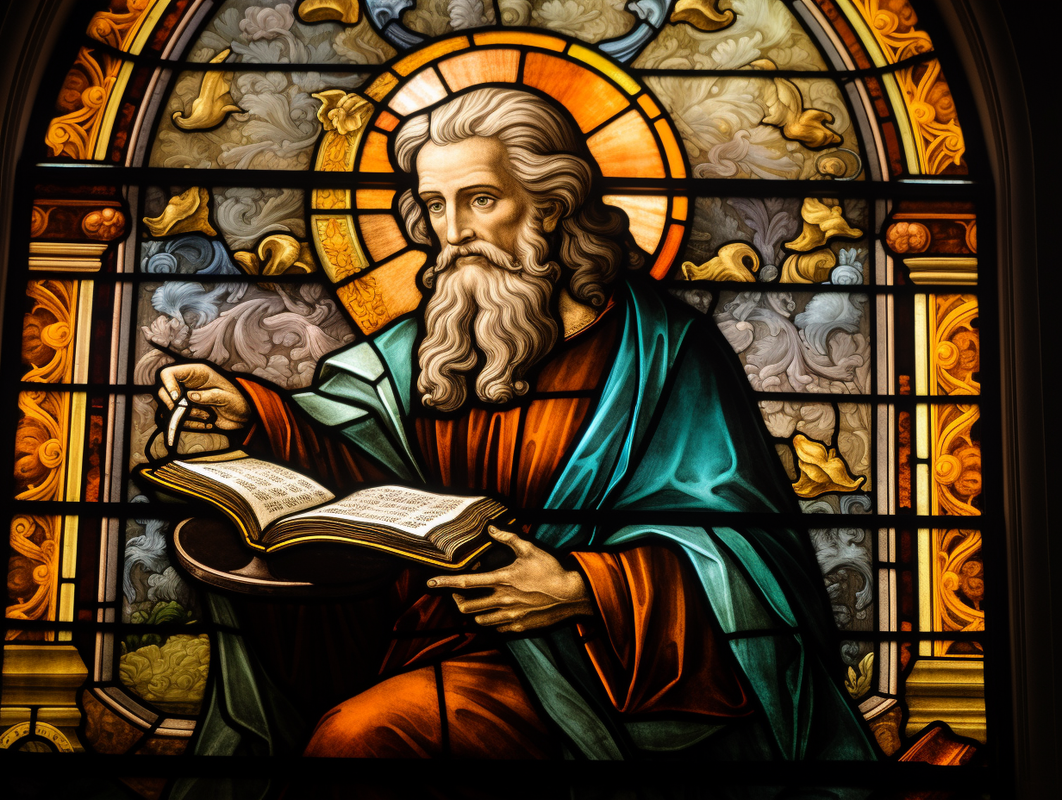




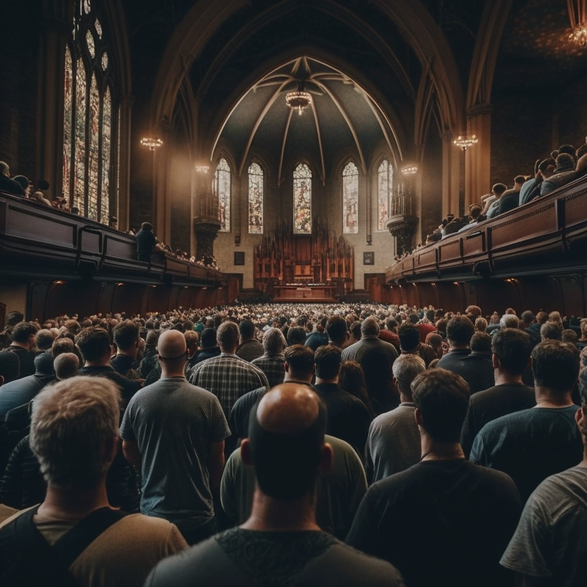
 RSS Feed
RSS Feed
